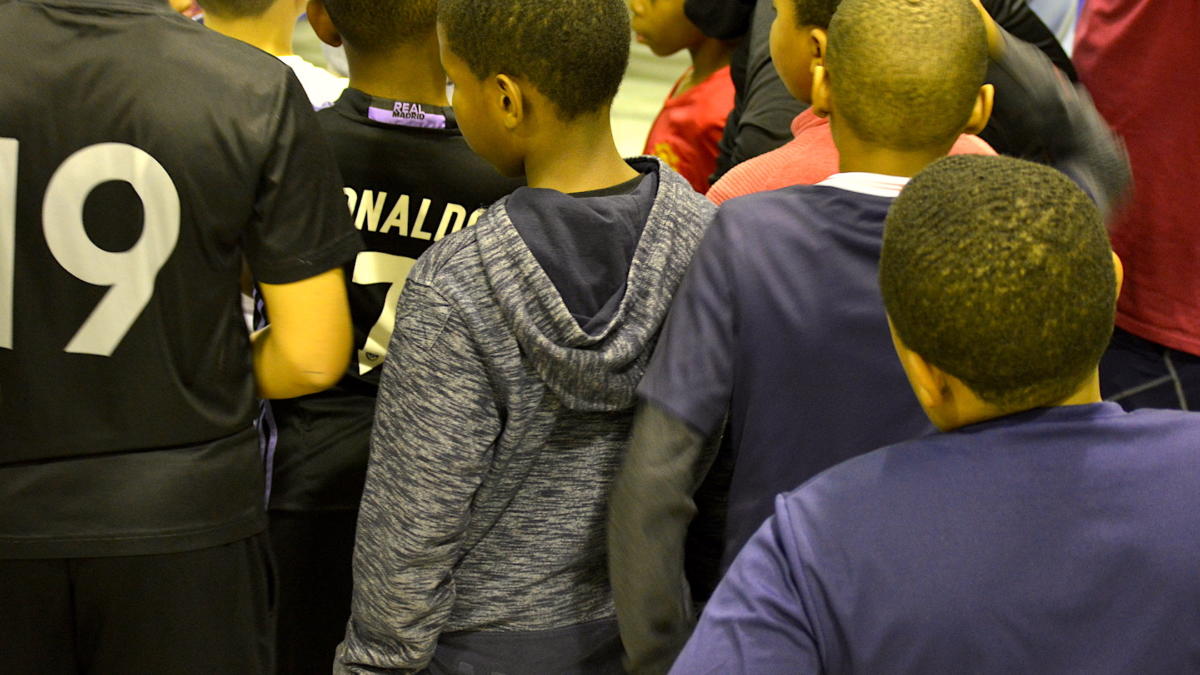Concerns over foster youth in congregate care or group homes, and youth in juvenile justice facilities, are spiking in the time of coronavirus.
The city’s Juvenile Justice Services Center, which houses more than 100 youths at the facility, currently has at least seven in quarantine after a health provider at the facility tested positive for COVID-19 on March 19.
Additionally at Catholic Social Services, youth services director James Black, said in a phone interview last week that a staff member at St. Francis-St. Vincent Homes in Bensalem had also tested positive.
Black, who had just learned of the diagnosis, was not sure what position the staff member held and said management was in the process of determining how to respond.
Kenneth A. Gavin, chief communications officer for the Archdiocese of Philadelphia, responded to further requests for information with an email statement: “Saint Francis-Saint Vincent Homes (SFSV) is following all coronavirus (COVID-19) recommendations and guidelines provided by government and health department officials at the local, state, and national levels.”
The incidents crystalize the controversy surrounding group living facilities and prisons during the current pandemic, as these facilities seem antithetical to the current medical need for social distancing.
Leola Hardy, chief of the children and youth justice unit at the defender association of Philadelphia, says JJSC officials have indicated the youths in quarantine have not shown any symptoms.
But there are other concerns.
The quarantined youth are allowed out only briefly, for end of day showers or an emergency should one arise. To Hardy’s knowledge, they have not been allowed to make phone calls to family or lawyers, raising concerns of civil rights violations.
Hardy also says the health provider tested positive on March 19 and the quarantine is due to end on April 4, and added that officials at the JJSC are “working with” the public defender’s office to resolve their concerns.
“What does social distancing for kids in these places even mean? How can they practice social distancing when they are sharing all their bathrooms and living spaces with [numerous] other kids and sharing such close space with staff?”
– Susan Vivian Mangold, CEO of the Juvenile Law Center
In the meantime, Broke in Philly and Philadelphia Weekly has learned that the infected youths are living in lonely confinement, in cells arranged around a common room. Those in quarantine have no televisions or radios in their cells but can if they stand, look outside their cells to see the TV. “We are worried about their well-being,” says Hardy.
Two weeks ago, a WHYY report indicated that 150 youth were in the facility and that Marsha Levick, co-founder and chief legal officer for the Juvenile Law Center, a youth advocacy group, was calling for the release of many of those children.
On Wednesday, Susan Vivian Mangold, CEO of the JLC said officials at group living facilities for youth need to consider moving kids to alternate locations, including with their families.
“It’s Dickensian to think about kids in these kinds of facilities right now,” she stated. “What does social distancing for kids in these places even mean? How can they practice social distancing when they are sharing all their bathrooms and living spaces with [numerous] other kids and sharing such close space with staff?”
Maura McInerney, legal director at the Education Law Center, adds that she is hearing stories from child advocates that youth in numerous facilities are receiving no schooling at all right now. Schools within many facilities have shuttered at many locations because of the pandemic. McInerney declined to name any specific facilities because “the situation is always changing so fast” only that she gets new information every day.
But, as McInerney noted, “We are talking about a widening of the education gap that already exists at these facilities.”
The ACLU of Pa., on behalf of the Pennsylvania Prison Society, has already filed an emergency request asking the state Supreme Court to use its “King’s Bench” power to protect public health by ordering county common pleas courts to release some people from county jails, including those who committed minor offenses, are awaiting trial or suffer a high risk of serious illness or death if infected by COVID-19.
A similar King’s Bench petition is expected to be filed soon regarding youth in custody.
Philadelphia Department of Human Services spokesperson Heather Keafer responded to questions about the safety of youth in congregate care facilities for Philly foster youth with an email: “While I can’t speak to any specific cases of COVID-19, or of any situation at a specific location, congregate care facilities are implementing responses to COVID-19 that are consistent with recommendations from federal, state, and local medical guidance and take into consideration the size of their facility as well as the number of youth and staff on-site.”
As for potentially removing some foster youth from group living facilities during the pandemic, she wrote: “Each child’s case is reviewed on an individual basis. There are many children in care who do not have safe places to return to.”

“Our Kids” is a project of the Broke in Philly reporting collaborative examining the challenges and opportunities facing Philadelphia’s foster care system. Philadelphia Weekly apart of Broke in Philly, a collaborative reporting project among 23 news organizations, focused on Philadelphia’s push towards economic justice. Read more of our reporting at brokeinphilly.org.




